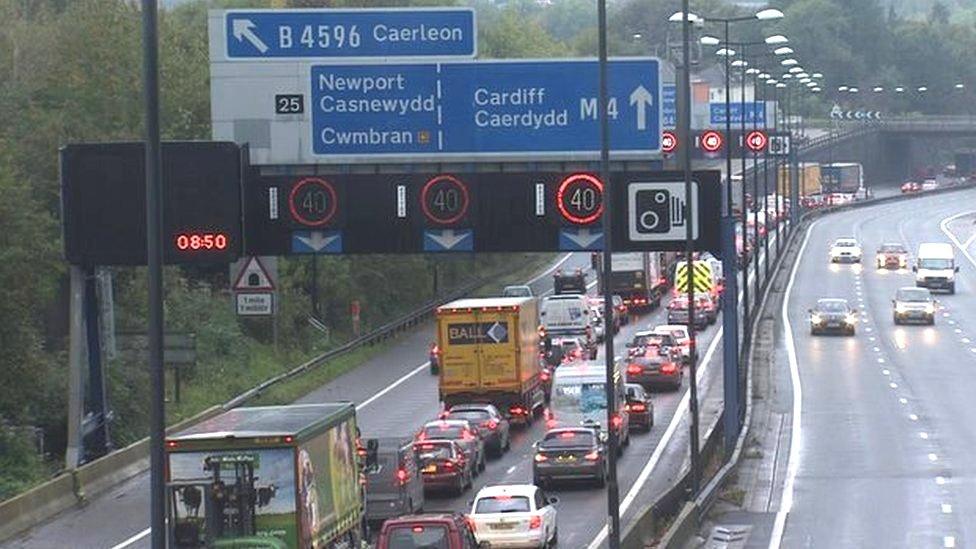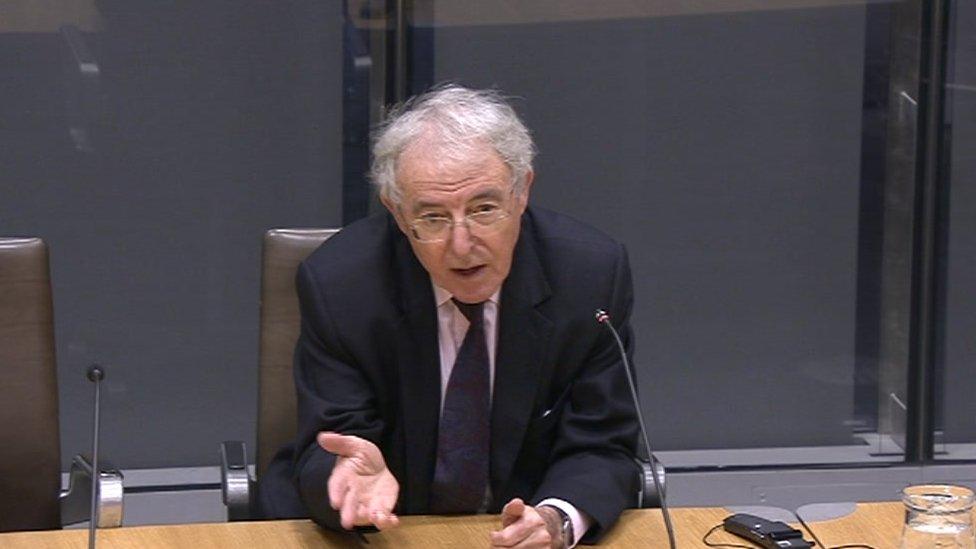Welsh funding: Assessing the fiscal framework deal
- Published

Finance Secretary Mark Drakeford says the deal is fair but will it make him accountable?
Ed Poole and Guto Ifan of the Wales Governance Centre, with David Phillips from the Institute for Fiscal Studies, examine the deal on how to fund the Welsh Government after it takes on tax powers.

In recent months, the Welsh and UK governments have been locked in high-stakes negotiations to determine how Welsh public services would be funded after tax devolution.
With hundreds of millions of pounds at stake, the stage was set for long, gruelling negotiations: the equivalent Scottish talks had ended in a deadline-day showdown.
But in Wales, it would all be over in a matter of months.
The announcement has big implications for the Welsh Government's budget.
But has it got all it wanted for Christmas?
How tax devolution will work
The crucial aspect of the deal is how tax devolution will be implemented. Once Wales gets the keys to about £2.5bn in new tax revenues the Treasury will cut the Welsh block grant - which funds all devolved services like health and education - by an equivalent amount.
In the years to come, this "block grant adjustment" will go up or down depending on what happens to comparable revenues in the rest of the UK.
This means Welsh taxes will need to grow as quickly as England's to keep up with Treasury deductions from the block grant.

An older population puts Wales in greater need but its taxpayers earn less than others in the UK
If Wales' economy performed like the rest of the UK, this might be reasonable. But Wales has much lower incomes, so linking Wales' budget to English tax growth would lead to losses over which the Welsh Government would have had no control.
For example, Wales has been disproportionately affected by the flagship UK policy to increase the level at which taxpayers start paying income tax - the personal allowance - because more Welsh taxpayers earn incomes around this level than in England.
In a win for Wales, the Treasury accepted this as a problem and agreed to make separate block grant adjustments for each of the three bands of income tax.
This should mean Wales is less exposed to UK policies that have different results across the UK.
However, the agreement offers no such protection for stamp duty, being replaced in Wales by a land transaction tax, external.
Given the deep-rooted differences in UK property market conditions - especially after Brexit - the Welsh Government will be exposed to risks that are outside its control.
In addition, Wales' slower-growing population may lead to slower revenue growth than in the rest of the UK.
The method chosen to cut the Welsh block - the "comparable model" - means Wales probably stands to lose out, even if revenues per head grow at the same rate as elsewhere in the UK.
This was something the Scottish Government refused to accept. To explain why Wales did accept this, we need to turn to the expenditure side of the deal - the funding floor.
Barnett bonus
The most striking element is the first major modification of the Barnett formula - which determines how increases or cuts in public spending are shared across the UK - since its introduction.
From now on, changes to the Welsh budget (resulting from increases in spending on services in England) will be increased by 5% initially, and by 15% if funding drops below an estimate of Wales' relative need - 115% of spending per person in England.
Although there seems to be little logic behind the choice of 5%, this change is intended to stop the so-called Barnett "squeeze" - the tendency for Wales' funding per head to decrease towards the level in England.
Recognition of Wales' higher needs will be much welcomed by the Welsh Government, given the Treasury's reluctance to change territorial funding arrangements in the UK.
Evaluating the deal
On balance, the "Barnett bonus" will likely more than offset the losses from Wales taking on population-related revenue risk.
So this is probably a good financial deal for the Welsh Government - but just how good a deal will depend on spending and population growth over the next few years.

Ministers can borrow more to pay for projects such as an M4 relief road
In proportion to devolved revenues, the doubling of Wales' capital borrowing limit to £1bn is also considerably higher than the Scottish Government's £3bn limit.
But while being a good financial deal, the agreement misses an opportunity to create a more sensible and transparent devolved funding system. In fact, it adds new complexities and quirks into the Barnett formula.
As with most other aspects of Welsh devolution, it is a product of bargaining and compromise that inevitably depart from first principles.
Because the Welsh Government bears population risk under the agreement, devolved taxes will probably fall short of deductions from the block grant and largely due to factors outside Welsh Government control.
So it will be difficult to assess the Welsh Government's performance in managing devolved revenues, clouding the crucial accountability link that tax devolution was meant to bring.
The agreement is also silent on whether Wales' higher need for spending should be reassessed. This could mean that an estimate of relative need in 2010 may end up impacting Welsh funding in 2040 and beyond.
Nevertheless, Welsh policymakers can breathe a justifiable sigh of relief - for now. Because, perhaps the biggest unanswered question from this agreement is how Wales' funding will change after Brexit, including the future of regional aid and support for farmers.
As the dust settles on this set of negotiations, there are potentially far more challenging talks just around the corner.
- Published19 December 2016

- Published6 April 2016

- Published21 November 2016
